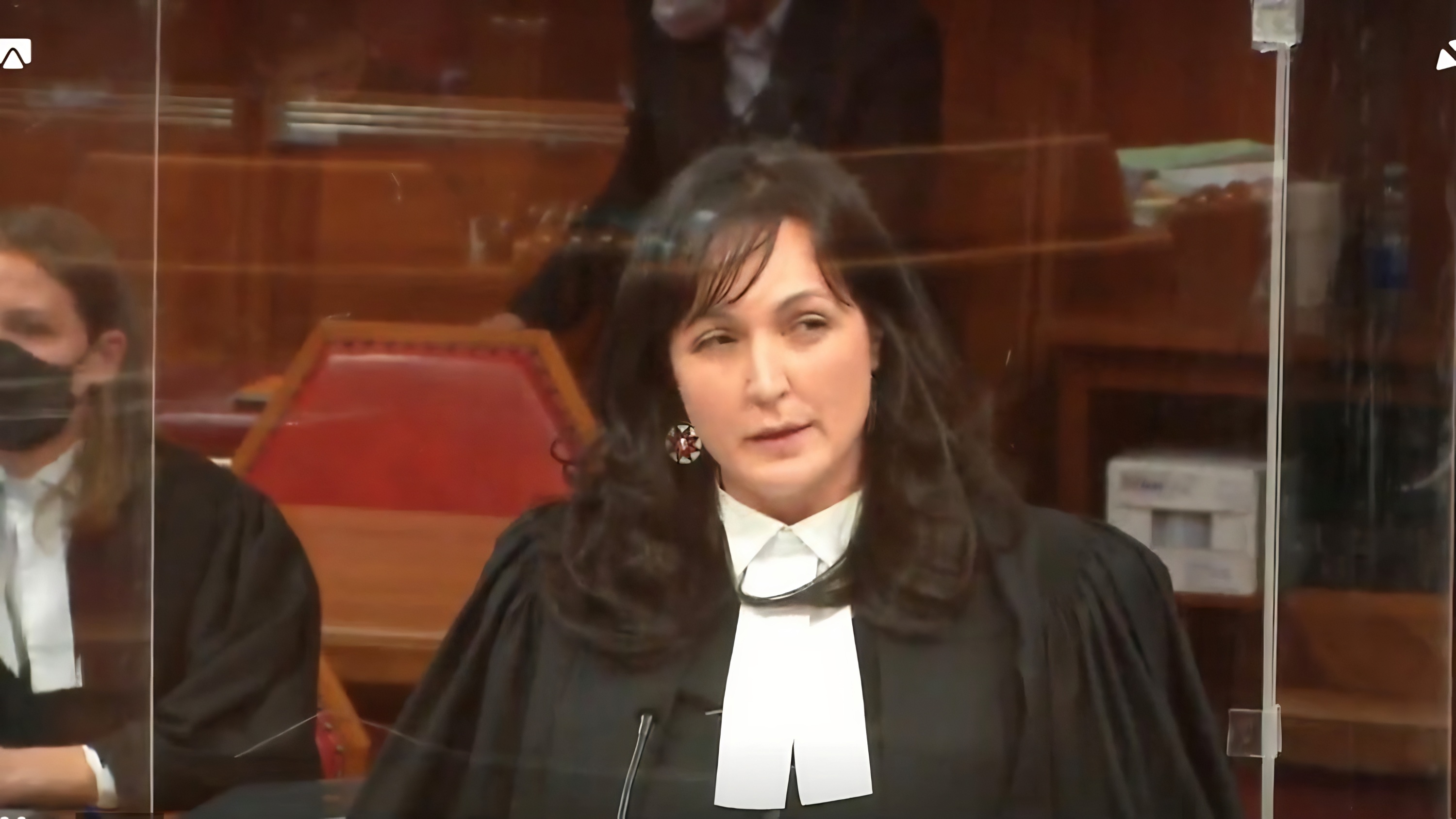As she prepared to present her case to Canada’s Supreme Court, Naiomi Metallic donned the traditional black robe and pants required of lawyers. The final touch — a powerful if whimsical reminder of why she was there — was only visible if she pulled up her pant leg.
Under her boots were ankle-high socks imprinted with images of Spirit Bear, the guiding talisman of the First Nations Child & Family Caring Society. The group has fought relentlessly for the rights of Indigenous children in Canada since child welfare advocate Cindy Blackstock filed a human rights complaint against the federal government in 2007.
A former professor in the University of Alberta’s former Faculty of Extension, Blackstock first introduced Spirit Bear to represent the 165,000 First Nations children represented in that complaint.
“It was a bit cheeky,” admits Metallic, a doctoral student in the U of A’s Faculty of Law. “I’ve got these bright pink socks on with spirit bears all over them, but they couldn’t be seen under the conservative court outfit I was wearing.”

A touch of cheek, perhaps, but the stakes could not have been higher. Originally from a Mi'kmaq community on the Gaspé coast of Quebec, Metallic had 10 minutes to make her case in defence of a groundbreaking 2019 federal law granting Indigenous people the authority to write their own child welfare laws.
Introduced in February 2019 as Bill C92: An Act respecting First Nations, Inuit and Métis children, youth and families, the law received royal assent the following June but was challenged by Quebec, which argued it amounted to a case of jurisdictional overreach by the federal government.
“I never worked so hard for 10 minutes in my life,” says Metallic. “There were 35 other intervenors in the case — I read everybody’s materials and had to process what they were saying.”
The toughest challenge was remaining focused on child welfare, she adds. Because arguments started leaning “in this whole other direction on the inherent right to self-government, raising a whole host of complex questions … we were getting worried about the court losing sight of the kids.
“With Cindy, it’s always about the kids — you cannot lose sight of that.”
Metallic rehearsed her arguments late into the previous night in her Ottawa hotel room, anticipating every possible question and rebuttal, her spirit bear perched on a chair next to her for inspiration. “I was laser-focused,” she says. In the end it paid off.
Advocating as an academic
Metallic first began advocating for the rights of Indigenous children with her law firm in the early 2000s, and became intimately acquainted with the failure of Canada’s legal system to guarantee basic services on First Nations reserves.
“Around that time, I met Cindy. We started sharing notes and realized that all these programs on reserves followed the same pattern. I started to support her work and then decided to go back to school so I could advocate as an academic, by writing and helping people understand the depths of the problem.”
As an attempt to tackle that problem, Bill C-92 was a genuine act of what Metallic calls “legislative reconciliation.”
When the Supreme Court’s decision came down last February, it was unified and unequivocal, says Metallic, giving First Nations laws precedence over provincial child welfare laws.
“I think it sent a strong message about the court’s overall support for legislation facilitating the exercise of Indigenous rights going forward. The justices all came together, which I was not expecting.”
She was also encouraged to see that the court made extensive reference to the UN Declaration on the Rights of Indigenous Peoples as a guiding document for reconciliation in Canada.
A win for legislative reconciliation
Perhaps most gratifying for Metallic was that the court’s decision drew not only on some of her arguments in court, but also her academic writing on legislative reconciliation. In one paper published last year in the U of A-based Review of Constitutional Studies, she points out that “for too long, Indigenous peoples have not benefited from similar respect and promotion of their inherent rights, and this has caused them significant harm.
“Legislative reconciliation is needed because the existing approaches to the implementation of inherent rights — negotiation and constitutional litigation — have been insufficient on their own to bring about a mutually respectful relationship between Indigenous and non-Indigenous peoples.”
Metallic holds the Chancellor’s Chair in Aboriginal Law and Policy at the Schulich School of Law at Dalhousie University. She decided to pursue a doctorate at the U of A to work with Hadley Friedland, co-founder of the Wahkohtowin Law and Governance Lodge, who is recognized nationally for revitalizing Indigenous law through community-led research.
Metallic and Friedland have also compiled a guide for judges on implementing the national standards established in Bill C-92.
Although the Supreme Court stopped short of granting comprehensive self-government to Indigenous Peoples of Canada, limiting its focus to issues of child welfare, the decision nonetheless has groundbreaking implications for other areas of Indigenous jurisdiction in the years ahead, says Metallic.
“It could apply to all kinds of things. The feds have already tabled a bill on water on reserves, there’s one coming on health and one in the works on policing in First Nations communities … so expect to see more.”
Wherever that path leads, says Metallic, Spirit Bear will be watching.
